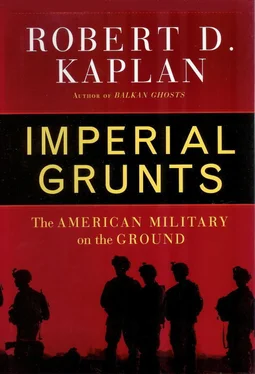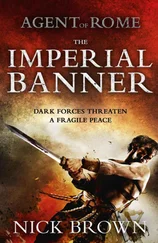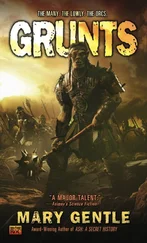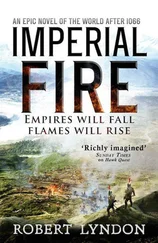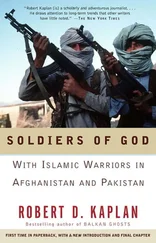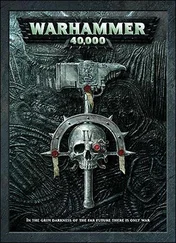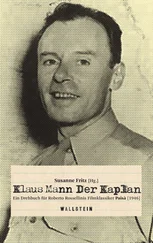———
I awoke the next morning to a racket of birds amid pink oleanders, highlighting fields of alfalfa and date palms at the bottom of soaring, crumbly canyons. In towns dubbed “mini-Manhattans,” because of the six- and seven-story mudbrick buildings stacked one against the other, hordes of young boys filled the narrow alleys. The jewelry stores had been boarded up and replaced by hardware and motorbike shops after the collapse of the nascent tourist boomlet of the early 1990s. This was when kidnappings increased and the Hadhramaut became known as an al-Qaeda hideout. In the shell of a dilapidated hotel, once owned by a Hadhramauti trading family from Singapore, I had a Pepsi with a devout young man who told me that “people here have different opinions about Osama than you do in America, so I think it is better that we do not discuss it.”
From the Wadi Hadhramaut it took five hours to reach Mukalla on the Arabian Sea, where the French oil tanker Limburg had been bombed by al-Qaeda in 2002. Mukalla teemed with Somali refugees, Ethiopian street urchins, and Islamicized Yemenis recently returned from Saudi Arabia. The Wahabi attempt to radicalize Yemenis was having more success in the formerly Marxist south, where fundamentalism was the natural reaction to communism and its assault on religion.
At sunset I took a walk on Mukalla’s beachfront. Red volcanic rocks pressed against steamy seawater with scabby white buildings in the background. The beachfront was divided into two parts: one for men and teenage boys; another for women and their young children. The women were veiled and most of the men had beards. Garbage was everywhere. Yet it was a peaceful communal space, with throngs of the proletarian faithful enjoying the first evening breezes. Mukalla offered the urban fundamentalist counterpart to the wild tribalism of the northern desert and the exotic cultural stew of the Wadi Hadhramaut. To judge by the recent firefights, Mukalla’s al-Qaeda cells had eluded capture by Yemeni commandos. Here was yet another battlefield that awaited successful penetration by U.S. intelligence agencies.
Yemen was vast. And it was only one small country. I looked at the teeming working-class crowd all around me, so pure and devout, each young woman with several children. To judge by the threadbare Western polyesters of the men, the folkways of the tribe were slipping away faster in Mukalla than in Sana’a, making religion here less traditional and inevitably more austere and political.
How was America to cope with this crowd and so many more like it, from Morocco to Indonesia? “Rome is no longer confined to Rome: henceforth she must identify herself with half the globe, or must perish,” writes the French novelist and historian Marguerite Yourcenar, assuming the voice of the Emperor Hadrian. 10
How to manage such an imperium? It was time to find out.

CHAPTER TWO
SOUTHCOM
COLOMBIA, WINTER 2003
WITH NOTES ON EL SALVADOR
“The future of military conflict was better gauged in Colombia than in Iraq…. In Colombia I was introduced to the tactics that the U.S. would employ to manage an unruly world.”
“How do you infiltrate and police the world, if such a thing were even possible?” I asked.
“You produce a product and let him loose,” retired U.S. Army Maj. Gen. Sidney Shachnow told me.
Back from Yemen, I had arrived at a horse farm in Southern Pines, North Carolina, a manicured landscape of calm hills, shaved lawns, freshly painted white picket fences, and carefully tended private roads less than an hour from the ratty sprawlsville that dominated Fort Bragg, home of U.S. Army Special Operations Command. Gen. Shachnow owned horses. Yet, with his spartan tastes and rugged, growly voice—his accent a blend of darkest Eastern Europe and working-class Boston—he didn’t seem to fit with this fantasy landscape. Gen. Shachnow had spent his life fitting into places he shouldn’t have. Sid Shachnow, a Jewish Holocaust survivor, was a veteran of two combat tours in Vietnam. With forty years of active military service, he was one of the deans of the Army Special Forces’ old boys network.
Born in 1933 in Lithuania, Shachnow spent three years of his boyhood in a Nazi concentration camp, and then supported his family in Allied-occupied Germany by selling contraband on the black market. He had watched his mother being raped by a drunken Lithuanian partisan—a fact that slipped out during one of our conversations, when he also told me about his attempt to get his family’s property back in Lithuania. 1“The number of Jews in Vietnam and in the world of Special Forces where I spent my life, well, you could fit them in a small car,” he said, shrugging.
We talked no more of it. Being Jewish was nothing he wore on his sleeve. He had married a Catholic girl and his Jewish family had virtually disowned him; the marriage, still strong, was at the half-century point. Besides, the world of liberal Jews was not one with which he could always be comfortable. “The shots of the last helicopters leaving Vietnam still nauseate me,” he said. “I remember getting Broadway tickets while on leave from the service, with a note written on them saying, ‘Don’t wear your uniform to the theater.’”
The layers of Shachnow’s personality were like armored breastplates. Every aspect of his lined face and short, wiry body seemed hard and chiseled. Awards, citations, and decorations lined the walls of his home and the guest quarters. I imagined Ligustinus, the Roman centurion who had served in Spain, Macedonia, and Greece. Ligustinus had spent nearly half his life in the army and was rewarded for bravery thirty-four times. 2
Shachnow had enlisted in the Army out of high school, and rose to sergeant first class before attending Officer Candidate School at Fort Benning, Georgia. He had survived concentration camp guards, got married with no money to a girl of another faith, raised a family of four daughters, gone from private to two-star general, and lived in a magnificent home, all because of decisions he had made on instinct and impulse. He implied that if the U.S. was going to monitor and regulate the world with a minimal number of troops and without large-scale wars, then it would require the ability to replicate soldier personalities like himself.
“An SF [Special Forces] guy has to be a lethal killer one moment and a humanitarian the next. He has to know how to get strangers who speak another language to do things for him. He has to go from knowing enough Russian to knowing enough Georgian and Arabic in a few weeks, depending upon the deployment. We need people who are cultural quick studies.”
Shachnow was not talking about area expertise; that took too many years to develop and, in any case, was not always practical for Special Operations Forces (SOF), a bureaucratic category which included Army Special Forces (the so-called Green Berets), Rangers, and psy-ops (psychological operations); Navy Special Boat Units and SEALs (Sea, Air, and Land commando teams); Air Force para-rescue units, and so forth. Special Operations Forces did not have the luxury of knowing in which part of the world they would have to intervene. Rather, Shachnow was talking about a knack, about a way of dealing with people, about implanting charisma almost. The right men would find things out and act on the information they gathered, simply by knowing how to behave in a given situation. [9] Women did not serve in the Special Operations community.
“The Special Forces who dropped in to help [the warlord Abdul Rashid] Dostum, the guys who grew beards, got on horses, and dressed up like Afghans, were not ordered to do so by Gen. Tommy Franks. It was a decision they made in the field.
Читать дальше
